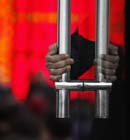Global Biz
BOJ member voice concerns on CPI at Feb meeting
(Xinhua)
Updated: 2010-03-23 14:01
 |
Large Medium Small |
TOKYO - Some policymakers at the Bank of Japan (BOJ) voiced concerns at the February policy meeting that factors such as the declining consumer price index (CPI) and the risks with the strong growth seen in the Chinese economy could present risks for the nation, according to minutes released by the central bank on Tuesday.
"A few ... members, noting an increase in the number of items for which prices had declined, said it was possible that price declines were becoming widespread (and some) said that recent movements in the CPI were slightly weaker than expected in the interim assessment of January 2010," the minutes revealed.
|
||||
Looking to China, the BOJ board was divided on the future for the economy, with some members expressing worries that the conditions for the Asian nation were similar to those experienced in Japan in the years preceding the bubble.
One member said "recent developments in real estate prices in China - where the prices were rising faster inland than in the coastal area - resembled the situation in Japan during the final phase of a bubble in the late 1980s, when the rise in land prices was faster in areas other than the Tokyo metropolitan area."
After discussions on the nation, some members said that "careful attention should be paid to developments in China's macroeconomics policy, including monetary policy, and their possible effects."
On the United States, Japan's other key trading partner, most members were in agreement that the economy was "recovering at a moderate pace," though some members pointed to risks, such as low employment, more stringent standards for lending in the banking sector and household adjustments, as factors that meant the BOJ should keep an eye on the country.
At the meeting, the BOJ opted to continue its policies of keeping the overnight call rate at 0.1 percent and pumping money into the markets in order to ensure liquidity. The BOJ has been pressured by the governing Democratic Party of Japan (DPJ) to do more to ensure deflation does not damage the nation's tentative economic recovery.









